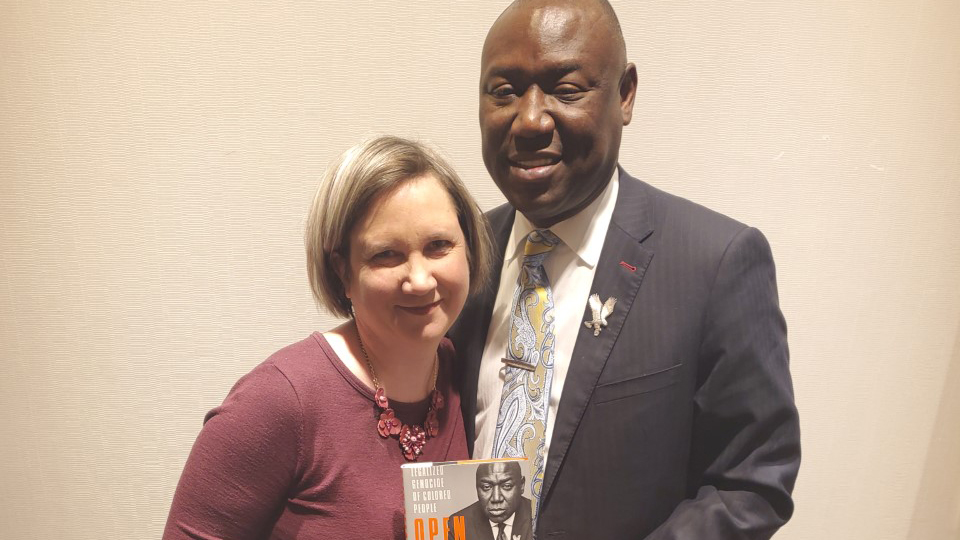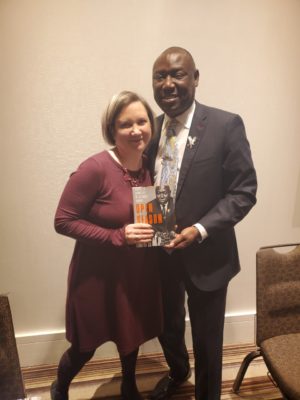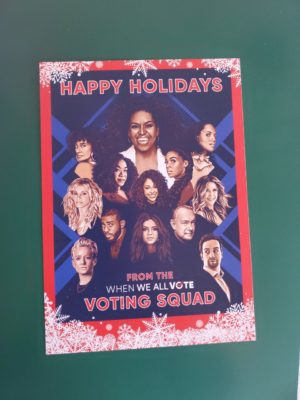
PYM participates on the board of the National Council of Churches. This week we are sharing PYM’s General Secretary, Christie Duncan-Tessmer’s, trip to the Conference of National Black Churches (CNBC). Christie is posting the final of three stories about the CNBC conference, sharing how the Conference of Black Churches is speaking to religious and secular communities today. The CNBC’s goal is to improve the quality of life for African Americans through their unique perspective on faith, and channel that energy into advocacy efforts.
Our final day of the Conference of National Black Churches wrapped up with a Call to Action. This was preceded by a talk by the famous civil rights lawyer Ben Crump—an advocate for social justice who has worked on cases representing the families of Trayvon Martin, Michael Brown and Steven Clark.
Mr. Crump had been called away from the conference to appear in court for a Trayvon Martin case-related issue but was able to return in time to participate in the Call to Action section of the conference.

As was promised when he was introduced, Mr. Crump did not hold back. His book is called Open Season: Legalized genocide of colored people.
He focused on the definition of genocide – the intent to destroy in whole or in part, a group of people – and spoke, or really preached, about the way in which our prison system functions as a tool of genocide.
One statistic that was new to me was that the fastest growing prison population is women of child-bearing years. That is seen as an indirect way of extending the practice of sterilizing women of color in prison—which was last documented in 2014.
I spoke with Mr. Crump afterwards about our yearly meeting and he signed a book to the Quaker Community: Equal Justice For All Our Children! I’ll bring it with me to the next yearly meeting event.
The actual Call to Action ended up being a task: for pastors and others to go back to their churches to take many specific steps to ensure their congregants are registered to vote, and do actually vote.

There is software available to help churches in this work and tools for reminding congregants to vote via church bulletins, websites, social media on every Sunday. Some tools were: make it a party, dress up, or convene teams of people who will vote together. A Holiday card that promoted voting and featured Michelle Obama and other celebrities was shared.
From there, the conversation turned to the importance of the Census. Stacey Abrams, who ran for Governor of Georgia, is deeply involved in this work and her sister was present. She shared her favorite quote from Abrams: “If they can erase us from the story of America, they can erase us from the future of America.”
In closing, we were given a draft copy of a conference resolution. Participants had a few minutes to read it and make some comments – similar to our practice. They then will work on revisions and release it when it’s ready. I asked them if it could be shared with me when finalized so I could make it available to Friends in PYM and they were pleased to hear PYM Quakers would want to read it.
Another aspect of being present at the Conference of National Black Churches are the interesting conversations I had with my National Council of Churches (NCC) counterparts.
Most of the church representation at NCC tends to be white. All of us have deep and long experience with church dynamics and have been working to grow our experience with inclusion and equity. Our private conversations ranged from the experience of being white at a conference of Black Churches, to being a woman in this world, to tokenism vs. the importance of accessing and understanding what is happening beneath the surface.
As I leave to return to Philadelphia, I have a stockpile of questions, and much to reflect on.